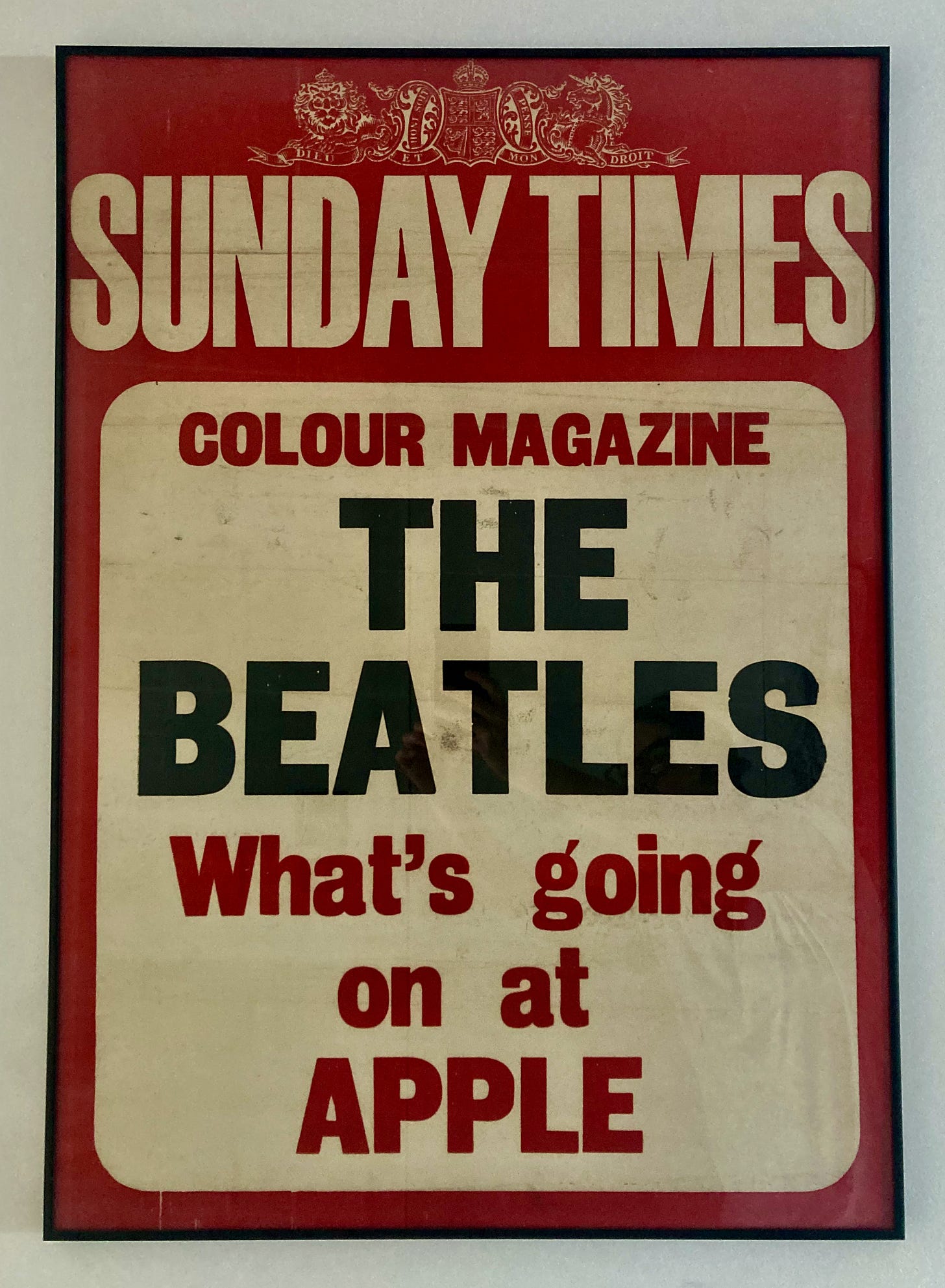Behind Let it Be pt. 2
A Spector at the Feast
In the spring of 1969, The Sunday Times Magazine commissioned me to find out what was happening at the Beatles’ Apple organisation.
Back then there was no bigger story than the Fab Four’s venture into big business under a name they’d thought of long before it adorned the myriad products of an American computer giant.
The Beatles’ Apple came into being to take control of activities from which others had made millions on their backs: making and releasing records, music publishing and merchandising.
There was also a strand of hippie idealism in their declared mission to sponsor youthful talent, not only in music but creative enterprise of every kind, down to seaside Punch and Judy shows.
Yet after barely a year, Apple seemed to be turning sour amid mismanagement, financial chaos and rumours of major personality problems among its four owners.
I felt unqualified for the magazine assignment, having never written anything of substance about them. Even so, their press officer, Derek Taylor – a wonderful, quirky man - invited me to ‘come and hang around’ their elegant Georgian headquarters in Savile Row, Mayfair.
I ended up hanging around there for more than two months with the world’s most beloved pop band disintegrating in front of me.
The access I received will astound any modern pop writer accustomed to strictly timed and monitored interviews with megastars in impersonal hotel suites.
Keep reading with a 7-day free trial
Subscribe to Read Me Do with Philip Norman to keep reading this post and get 7 days of free access to the full post archives.


